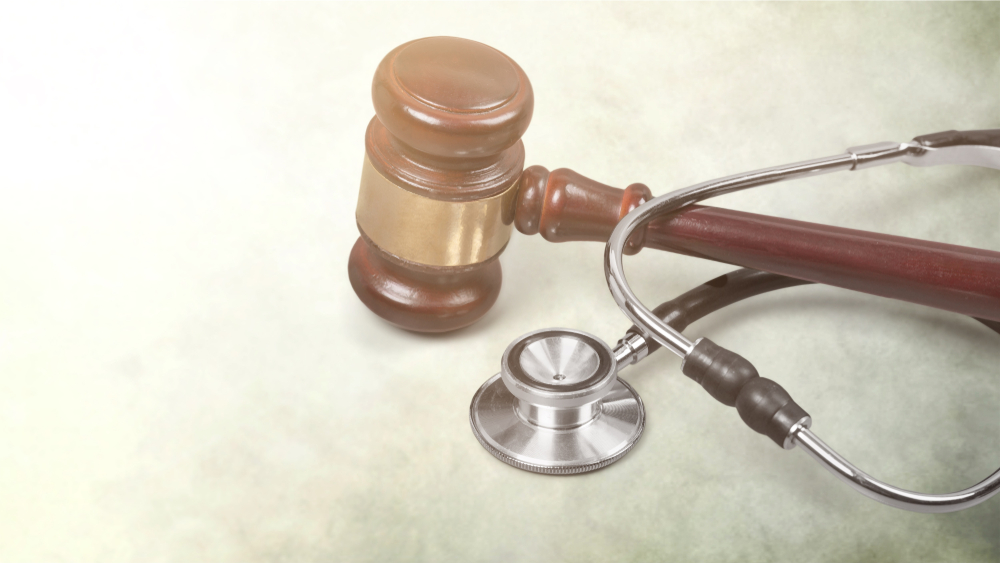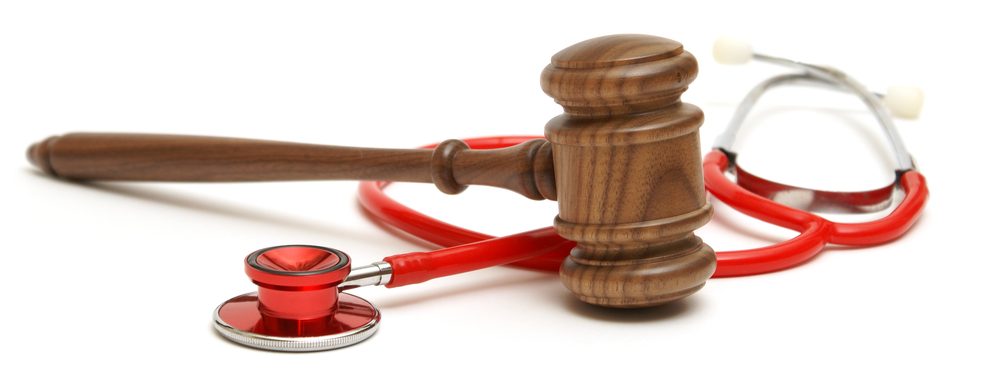Aaripiprazole, better known by the brand name Abilify, was first discovered in 1995 by Japanese scientists working for Otsuka Pharmaceutical. In 2002, the FDA approved Abilify as a medication to treat schizophrenia in adults. The development of the drug had taken seven years under the investment of Bristol-Myers Squib (BMS), an American pharmaceutical company out of New York. By 2013, Abilify was earning the company $7 billion per year.
In 2006, the FDA insisted on adding warnings that using Abilify to treat dementia-related psychosis came with an increased mortality rate, and BMS faced its first court case over marketing to children and the elderly. In 2016, the FDA then insisted new labels be added, warning of patients of uncontrollable behaviors including compulsive gambling, sexual urges, eating disorders, and reckless spending.
Since its first release, BMS has had to pay over half a billion dollars in US fines and settlements for its marketing of Abilify, as well as millions more overseas. There are currently over 800 cases still outstanding against the company, with decisions supporting patients every year. Medical research continues to find concerning consequences of Abilify use.
Despite these cases, Abilify and its generic counterparts are still causing harm while making companies billions of dollars. In 2017, journalists discovered that state correctional facilities across the country were prescribing Abilify to teenagers and paying BMS hundreds of thousands of dollars to do so.
If you or a loved one were taking Abilify before 2016 and experienced concerning behavioral or physical changes, you may be eligible for compensation. Our form will put you in touch with a local lawyer who can offer guidance regarding your situation, and many lawyers work on a contingency basis, foregoing fees until they are able to help you.
Why Are Abilify Lawsuits Warranted?
The original labeling of Abilify by Bristol-Myers Squib contained no warning of behavioral changes that could lead to issues with gambling, sexual compulsion, or eating disorders. Early labels also neglected to contain information regarding the risks of taking the medication at later ages.
While BMS added warnings about compulsive behavior to its medication in Canada and Europe as early as 2012, it did not do so in the United States until forced to by the FDA.
BMS repeatedly advertised their medication outside of the FDA’s list of approved disorders, including major depression. It promoted the drug for its use in both the young and elderly, despite known and severe consequences for both. It also provided illegal kickbacks to doctors that chose to prescribe Abilify over other therapeutic choices.
This reckless marketing and negligence to provide proper warnings to patients and their doctors means the company can be held liable for the consequences of use.
Compulsive activities can be extremely damaging both to the patient and their families. Problem gamblers, for example, are 3 to 4 times more likely to be arrested for crimes related to their problem and up to 7 times more likely to use recreational drugs. People who experience compulsive sexual behaviors are more likely to have sexually-transmitted infections and experience a higher rate of relationship breakdown.
There are other pharmaceutical options for sufferers of mental illness that do not contain the same risks as Abilify, and therefore it is difficult to argue that the benefits of taking the medication outweigh such risks.
How Do I Know if I Qualify to Be a Part of an Abilify Lawsuit?
If you were prescribed Abilify before 2016 and then developed compulsive behaviors related to gambling, spending, eating, or sexual urges, you may be qualified for compensation. It is important to discuss your specific circumstances with a lawyer in your jurisdiction.
Some questions they may ask you include:
- Are you or your doctor able to provide evidence that you were prescribed Abilify before 2016?
- At what age were you when you had been prescribed the medication?
- Did you have prior compulsive behaviors before being prescribed Abilify?
- Do you have records that show compulsive behavior? These may include bank statements, betting receipts, arrest records, and other legal documents.
- Are you no longer taking the medication?
- Do you have evidence that such behavior stopped when you went off Abilify?
Even if you feel that you are unable to answer all of the above questions, you should speak to a qualified professional. Please do not take these questions to have specific required answers for you to be eligible for compensation. When you speak to your lawyer, it is helpful to have a full copy of your medical history. All information you provide is protected by lawyer-client confidentiality.
A History of Abilify Lawsuits
Bristol-Myers Squib has spent billions of dollars in fines and settlements since first taking Abilify to market, each result highlighting concerning practices regarding off-label marketing, kickbacks, and keeping hidden known side-effects of the drug. Collated here is just some of the legal history of Abilify.
The US Justice Department (2007)
Over half a billion dollars in fines were paid to the federal government over illegal marketing and pricing by BMS during the prior five years. These practices included marketing the drug for pediatric use, paying doctors millions of dollars to prescribe the medication, and selling medication to hospitals at inflated prices.
42-State Settlement (2016)
BMS paid another $20 million in a settlement against 42 separate states for continuing to market Abilify to children and as a medication for dementia.
Florida Multidistrict Litigation (2016)
As soon as the FDA announced the demand for new warning labels, civil cases were brought forward across the country. Within months, hundreds appeared.
In October 2016, lawyers argued to have a large number of these cases to be heard as part of a multidistrict litigation (MDL), also known as a “Class Action Suit.”
This motion was successful, and in 2018, the first plaintiffs in this MDL made their case. The cases of Fanny Lyons, David Viechec, and Jennifer Lilly became the “bell-weather” cases and each eventually settled in private. They originally asked for over a hundred thousand dollars in damages. After this successful settlement, BMS was ordered to settle the remaining 808 cases that made up this MDL.
It is important to note that 149 of those cases failed to receive compensation due to not being able to bring forth medical evidence of their prescriptions. Settlement administration is continuing in 2020, with plaintiffs expecting to receive compensation by the new year.
Other Multidistrict Litigations (2018 onwards)
Since the landmark Florida trial, new MDLs have formed in New Jersey, Pennsylvania, and overseas. As of date, over a thousand cases have been settled and hundreds more are pending.
What Is Abilify?
Abilify is the original brand name of the drug aripiprazole, an atypical antipsychotic that has been approved to treat symptoms of schizophrenia and bipolar disorder. It has also been used as an additional therapy for Major Depressive Disorder and Obsessive-Compulsive Disorders.
The drug was first discovered in 1988 and was developed over the next decade and a half before being released by Bristol-Myers Squib in 2002. Abilify was aggressively marketed and soon made BMS $7 billion per year in revenue. In 2015, generic versions of the drug became available.
Abilify as an Atypical Antipsychotic
The mechanisms for how Abilify works to decrease mania are complex but primarily work based on being “dopamine and serotonin agonists”. These hormones play an important role in our emotions, and by interacting with their receptors Abilify helps control levels that may sometimes be too large or small in patients with schizophrenia or bipolar disorder. Abilify is rarely used on its own, but is typically prescribed in conjunction with other drugs.
Despite being found to be one of the least-effective drugs on the market, in 2014 it was the best-selling drug on the American market.
The Link Between Abilify and Compulsive Behaviors
Before 2016, several studies into dopamine agonists had concluded with clear correlations between use and compulsive behaviors. While the first reported case reports began to appear as early as 2010, cases continue to be reported by doctors today. In each of these cases, patients reported marked changes in sexuality, gambling, spending, and other compulsive behaviors than then subsided when the medication was removed from their treatment regime.
Pharmacologists suspect that Abilify’s ability to interact with a specific type of dopamine receptor is the cause for this behavior, and studies are ongoing.
Other Concerning Side Effects of Abilify
While current cases and research have focused on the role Abilify plays in compulsive behavior, including gambling disorder and sexual disorders, the medication has not been without other controversies.
Research has shown that there is a much larger chance of developing diabetes if taking Abilify, which increases even further the younger you are. In 2014, two suits were taken up against BMS for the role their medication played in the development of diabetes in several children. While these suits failed, new research continues which may affect future cases.
How Does an Abilify Lawsuit Work?
If your lawyer decides there is appropriate evidence, they may decide to take your case or refer you to another experienced lawyer who takes similar cases. In civil matters, lawyers tend to work on a contingency basis. This means they will request no initial fees, instead of forming a contract that pays a percentage of damages recovered. This means you will not be out-of-pocket early in the case, and your lawyer is incentivized to get you the best possible outcome.
Your lawyer may decide to file your case along with other similar cases, as part of a Multidistrict Litigation, or MDL. These are often referred to as “Class Action Lawsuits” and allow lawyers to pool resources in order to better fight against multi-billion dollar pharmaceuticals. Another benefit of being a part of an MDL is knowing you are not alone in your experiences; others too have suffered as a result of BMS’s practices, and agree that the company should be held responsible.
Unfortunately, due to their complex nature, large lawsuits may take years of hard work, including much paperwork, many interviews, and smaller court appearances. While your lawyer will do most of the work, and you will not always need to appear in court, you need to be mentally prepared for a long and arduous process.
Do I Need a Lawyer to Join an Abilify Lawsuit?
It is not strictly necessary to have a lawyer to be part of a lawsuit. However, the justice system involves a number of complex processes, and having an experienced lawyer may open up avenues that you may not recognize as being available to you. Some MDLs will not accept new plaintiffs that are not represented by their own lawyer, and it’s very unlikely for a pro-se plaintiff to succeed in such a complex case.
Remember, a pharmaceutical company will be hiring multiple law firms and dozens of lawyers to fight against your legitimate case. Having a lawyer to help you navigate the tiers of the legal system lets you concentrate on maintaining strong mental health during a stressful period, and frees you from confusing paperwork, so we always recommend that you contact an attorney who understands Abilify lawsuits by filling out our form.
As most lawyers work on contingency, only taking a small portion of damages won (and costing you nothing in the unfortunate failure of a case), you are in no way disadvantaged by seeking highly qualified and experienced assistance for your case.
How Long Does It Take to Settle an Ability Lawsuit?
The average length of a civil lawsuit is between one and three years, with lawsuits against pharmaceuticals often taking much longer. Cases will involve multiple court appearances, appeals, and motions, as well as mounds of paperwork for lawyers to work through. While the creation of class-action suits helps expedite the process, even these can last over half a decade.
During this time, you may be required to provide updated information regarding your situation as well as retell your story over and over. This can be emotionally and mentally draining, and it is important to consider your health when doing so.
What Is the Statute of Limitations on an Abilify Lawsuit?
The “statute of limitations” is the amount of time you have to put forward a lawsuit for an event that caused you damage. In the case of Abilify suits, this would be from the moment you began suffering from the consequences of being prescribed.
The statute of limitations is different for each jurisdiction and can range from 1 to 10 years after the event. Speaking to a local lawyer can help you work out if your case would fall within the appropriate period of time, even if your case is then heard in a separate jurisdiction. It is wise to begin proceedings as soon as possible to ensure your case falls within these limitations.
How Much Can You Get From an Abilify Lawsuit?
Settlements from pharmaceutical lawsuits can range from thousands to millions of dollars. Damages are awarded after carefully considering the damage caused to the plaintiff and their families. This includes ongoing medical costs, loss of income, and even psychological stress. The court may also award extra damages if they believe the company has been highly negligent in their actions.
Every case is unique, and therefore it is difficult to estimate what damages you may receive from a civil suit. Previous settlements in Abilify cases have been recorded in secret. While this means we are unaware of what damages were received, it does provide evidence that the courts believe damages are warranted.
How Long Does It Take to Get Your Money After You Settle a Lawsuit?
A settlement does not mean you will see your money soon after. A recent 2019 settlement against BMS has yet to be settled due to administrative processes and the delay caused by the COVID-19 pandemic.
A defendant also has the right to appeal their decision to higher courts. This means that while a judge may award a settlement, it may be held until the entire appeals process has been followed. This may add years to the time you will see compensation.
Once the court process has been completed, however, funds are cleared for payment within six weeks. The money is then used to pay any outstanding medical bills of the clients. Following this is the fees for the lawyers who, up to now, have been working for free. This portion of the settlement has usually been predetermined as a percentage of the final settlement.
It rarely takes months for released money to be given to the plaintiff in a case. However, it does happen. Be assured that United States law provides strong protections to ensure plaintiffs can not be taken advantage of during this time.
The final amount to be paid is done so through electronic transfer or cheque.
Wrapping Up
If you were prescribed Abilify before 2016 and later developed compulsive behaviors, especially in the form of gambling, spending, or irrational sexual behavior, it is important to consult with a professional. You may deserve compensation for the undue damages caused by the negligence and aggressive marketing practices of Bristol-Myers Squib. To find out if you are eligible for such compensation, fill out our form to connect with a lawyer today.





